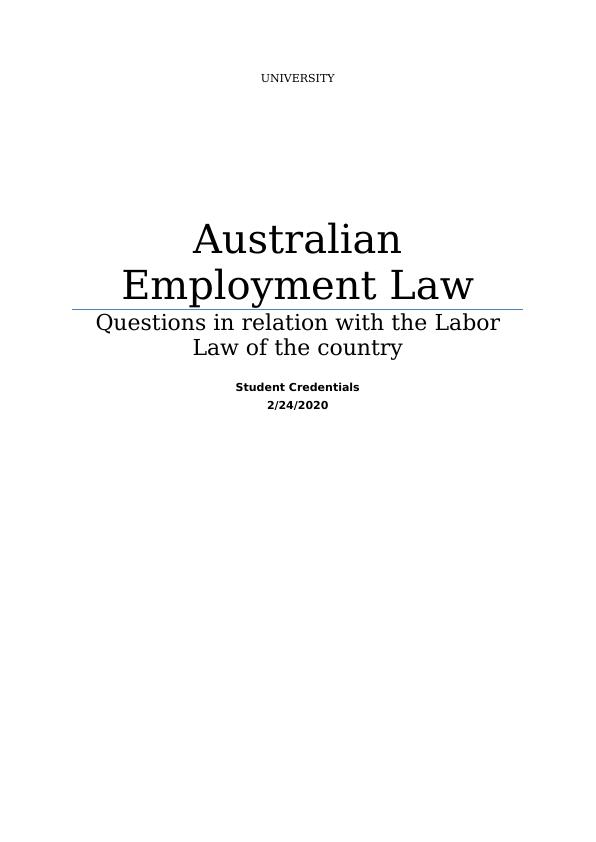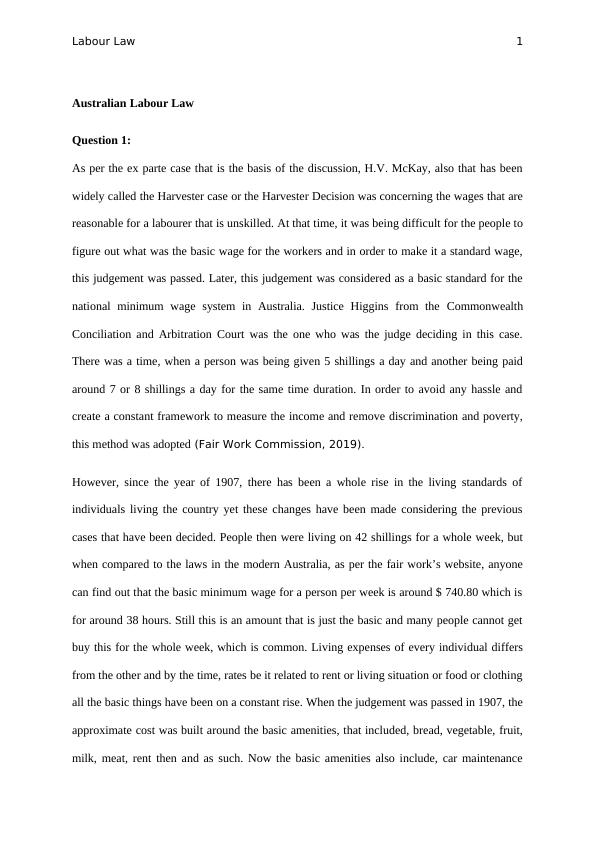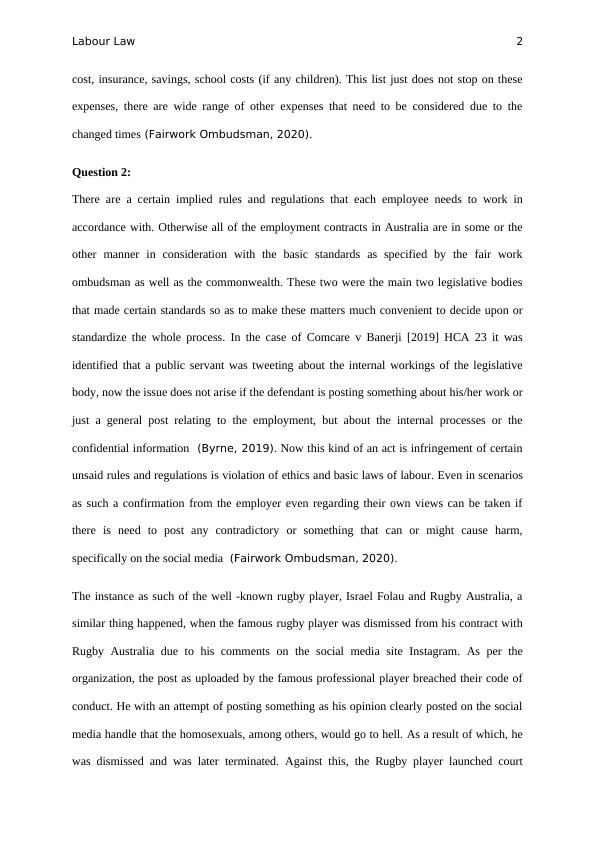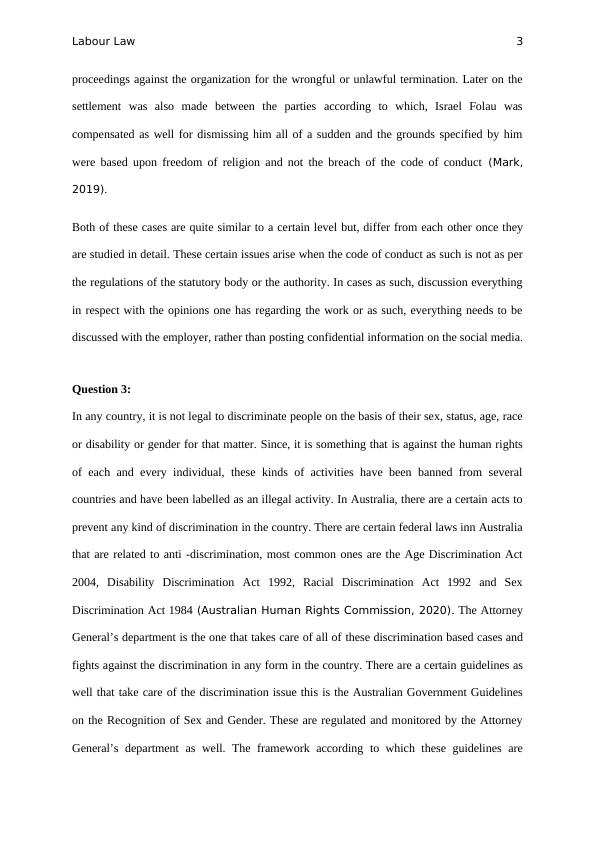Labour Law in Australia: Wages, Discrimination, OHS and Unfair Dismissal
Reading notes for Employment Law course at RMIT
14 Pages3969 Words408 Views
Added on 2022-09-30
About This Document
This article covers various aspects of Labour Law in Australia including wages, discrimination, OHS and unfair dismissal. It discusses the legal framework, cases and guidelines related to Australian Employment Law. The article also includes case studies and examples to provide a better understanding of the subject.
Labour Law in Australia: Wages, Discrimination, OHS and Unfair Dismissal
Reading notes for Employment Law course at RMIT
Added on 2022-09-30
ShareRelated Documents
End of preview
Want to access all the pages? Upload your documents or become a member.
In relation to modern awards and the current minimum wage Australian labour law has not changed that much since Justice Higgins determined in the Suns
|4
|438
|84
Australian Employment Law
|6
|1130
|391
Employment Law: Minimum Wage, Contractual Terms, Discrimination Laws, Safety Regulations, and Domestic Violence
|8
|1689
|306
Development of Australian Social Policies - Assignment
|6
|1739
|52




